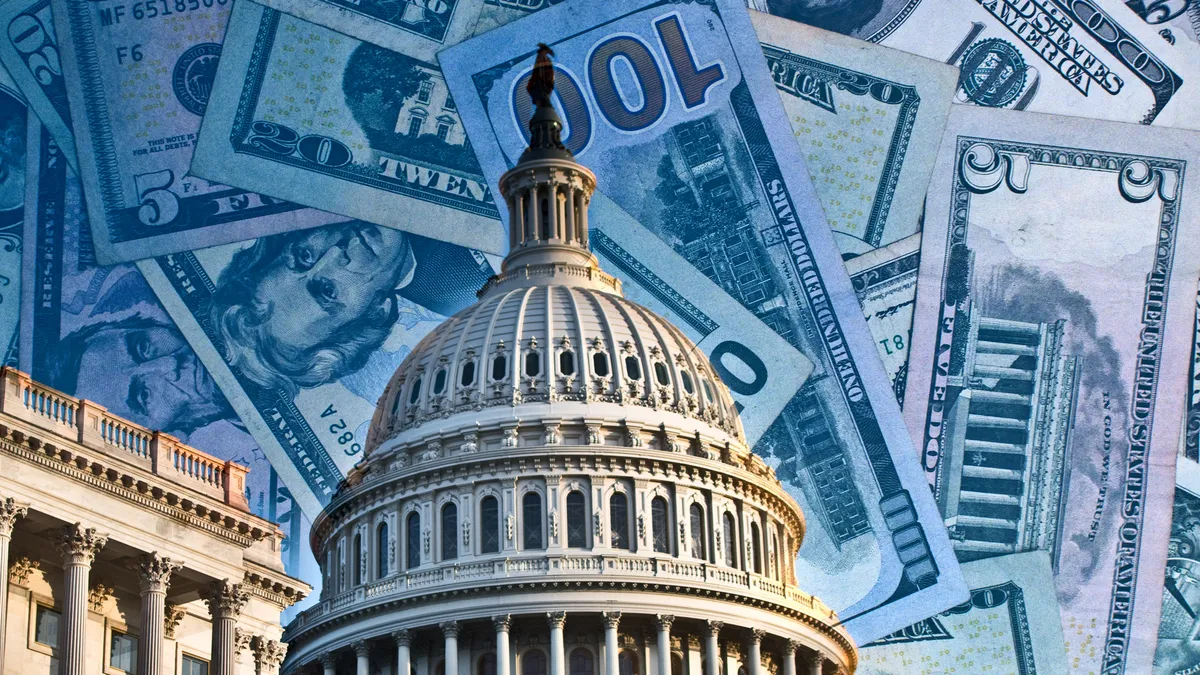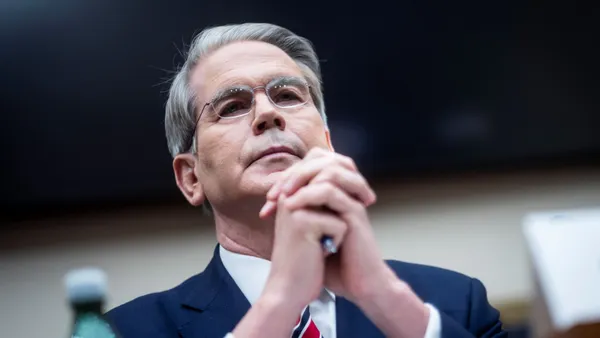Dive Brief:
- The Inflation Reduction Act — channeling hundreds of billions of dollars to cut health care costs and combat climate change — may backfire by curbing growth and increasing price pressures, the Tax Foundation said in a study.
- “By reducing long-run economic growth, this bill may actually worsen inflation by constraining the productive capacity of the economy,” the Tax Foundation said. The bill, passed by the Senate on Sunday, is expected to gain final congressional approval in a House vote on Friday.
- “By increasing spending, the bill worsens inflation, especially in the first four years, as revenue raisers take time to ramp up and the deficit increases,” the Tax Foundation said, adding that permanently extending subsidies on tax credits and health care programs would pump up price pressures. “We find that budget deficits would increase from 2023 to 2026, potentially worsening inflation.”
Dive Insight:
The Tax Foundation findings clash with assertions by the White House, Democratic lawmakers and several Nobel Prize-winning economists that the legislation will help rein in the highest inflation in decades.
“This historic legislation makes crucial investments in energy, health care and in shoring up the nation’s tax system,” 126 economists said in an Aug. 2 letter to Democratic and Republican leaders in the House and Senate.
“These investments will fight inflation and lower costs for American families while setting the stage for strong, stable and broadly-shared long-term economic growth,” the economists said.
The following day, 230 economists sent a letter to the same congressional leaders saying the Inflation Reduction Act “is a misleading label applied to a bill that would likely achieve the exact opposite effect” by increasing both taxes and federal spending.
“At a time when the economy already faces supply-demand imbalances from the residual effects of stimulus, labor shortages and supply chain disruptions, this bill will compound rather than alleviate many of these problems,” the economists said.
The legislation, passed 51-50 with a tie-breaking vote by Vice President Kamala Harris, drew fire from Republicans for creating a 15% minimum tax on large, profitable corporations and a 1% excise tax on companies’ stock buybacks.
“Democrats’ response to the recession they caused is giant, job-killing tax hikes and doubling the IRS,” Senate Minority Leader Mitch McConnell (R-Ky.) said Sunday in a statement, referring to $80 billion earmarked for the IRS over 10 years. “And their response to the runaway inflation they’ve created is a bill that experts say will not meaningfully cut inflation at all.”
President Joe Biden dismissed Republican criticism, hailing the legislation for “making the wealthiest corporations finally pay their fair share.”
Before the vote on the bill, Democratic lawmakers estimated that the legislation would raise $739 billion in revenue, with $313 generated by the 15% corporate minimum tax, according to the Joint Committee on Taxation.
The bill will curb price pressures by reducing the cost of energy, health insurance and prescription drugs, Biden said. It “tackles inflation by lowering the deficit and lowering costs for regular families,” he said.
The legislation during the next decade would reduce the deficit by more than $300 billion, the Democrats said.















